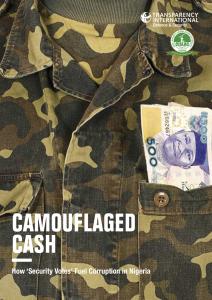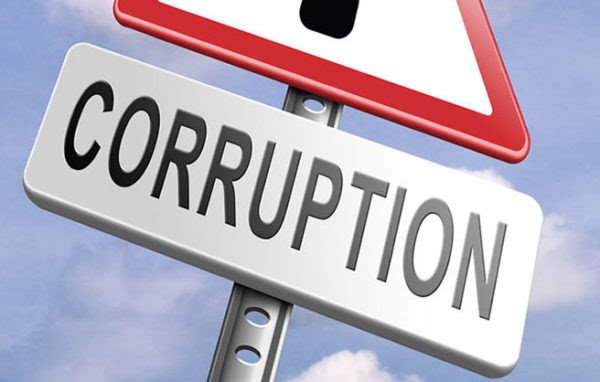- Have any questions?
- [email protected]
Security Vote as a Recipe for Corruption in Nigeria

Current State Of Nigeria
29 March 2021
YMonitor Issue 086: Financial Sinkhole
30 March 2021By Omidiji Olamilekan Qayum
Public fund misappropriation in disguise of enhancing national security has unfortunately become a growing culture. Even though what is meant by national security may sometimes be ambiguous as the specifications of each state decide its focal point.

In Nigeria today, the widespread practice of misappropriating and diverting public funds is indisputable; this is mainly being fuelled by the nation’s huge oil rents and is entwined with the concept of national security.
Not underestimate the fact that insecurity is one of the significant problems facing Nigeria. This problem has grown in proportion and gravity, with different insurgent groups ravaging different parts of the nation. The challenge of insecurity has dominated the public sphere and has tasked the energies of the nation’s security forces, as well as the nation’s resources, beyond imagination.
Insecurity is not peculiar to Nigeria alone; it is a global problem that doesn’t exclude technologically advanced countries. However, the underlying difference between Nigeria and other nations is the lack of political will, demonstrated capability and commitment to combat the monster of insecurity.
By the importance of security on a nation’s social, economic and political development, no measure is too much to spare in securing the peace of any country. In Nigeria, aside from the establishment of different military institutions such as the Nigerian Police Force, Nigeria Security and Civil Defence Corps, Armed Forces, Directorate of State Security Service, with yearly budgetary allocations, a seemingly massive amount of money tagged security vote is usually given to heads of the executive arms, at the national, state and local government levels. This is majorly to combat unforeseen security challenge that may emerge in these domains.
As wonderful as this development may be, it is sad that series of reports revealed that several billions of naira had been siphoned by government heads in disguises as security votes. In 2019, Transparency International, an international anti-corruption watchdog, raised the alarm for over N241 billion meant to be spent annually on security votes but was unaccounted for by the Nigerian government.
Another Vanguard newspaper report revealed that up 60 billion dollars meant for security votes by the executive arms were also not accounted for. Even though there is not detailed empirical data on the actual or validated figure, these figures are nonetheless revelatory that huge amounts are being siphoned by the Federal, State and Local governments in disguises of security votes. The Legal Defence and Assistance Project, LEDAP, a non-governmental organisation, also once lamented that: “Security vote, as well as Local government allocations, are the two windows through which states executives loot public treasuries”.
It is more worrisome to know that there Is no limit to what can be spent as a security vote, and sad to say, the amount involved is rarely subject to appropriation or any form of accountability or legislative scrutiny but shrouded in secrecy. Also, nevertheless that these funds are collected regularly, the nation’s security challenge has continued to grow more sophisticated. The so-called security vote is simply a disguised term to “secure the financial interest of the recipient rather than the lives and property of Nigerians.”
Hence, the unappropriated and unaccounted amount obtained as a security vote should provoke patriotic interest among the citizens. This is particularly because Nigeria operates a democratic system whose tenets entail openness, transparency, accountability and active citizenship. More importantly, a continued lack of oversight and control will lead to more abuse of the security vote practice.
Further, considering the high rate of corrupt practices which has rendered the country almost prostrate, the security vote should be subject to public and legislative scrutiny. Alternatively, the funds for security votes should be sent to agencies constitutionally charged with national security with checks and balances to ensure accountability.

